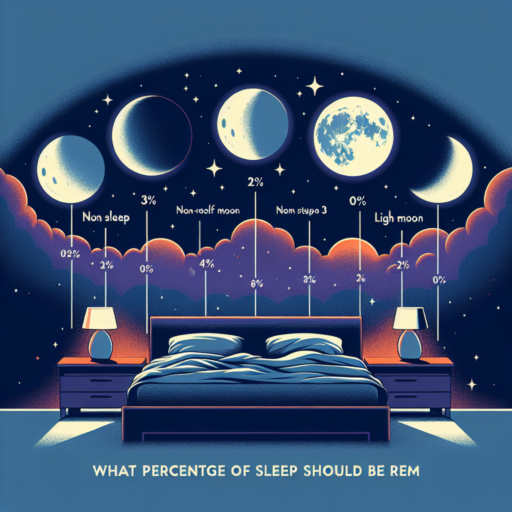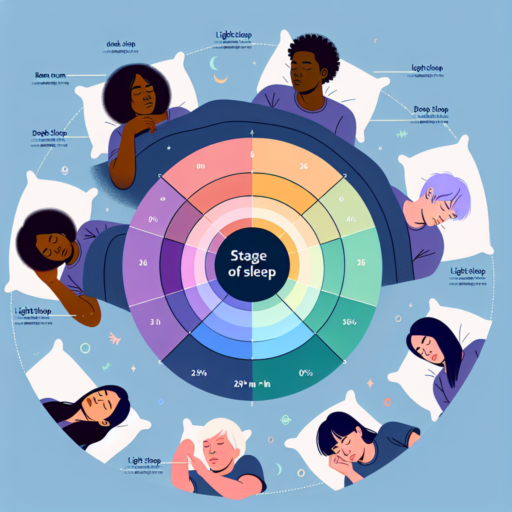What is better, light sleep or deep sleep?
Understanding the difference between light sleep and deep sleep is crucial when analyzing their benefits to our health. Light sleep acts as a gateway to the deeper stages of sleep, playing a significant role in brain function and memory consolidation. During this phase, the body begins to relax, heart rate and breathing rates slow down, but individuals can still be easily awoken. This aspect of light sleep is essential for maintaining a balanced sleep cycle and ensuring that one can respond to environmental signals if necessary.
In contrast, deep sleep is the period during which the body truly begins its healing and rejuvenation processes. It is during this stage that human growth hormone is released, which is vital for growth and development, cell repair, and metabolism regulation. Deep sleep contributes significantly to immune function, energy restoration, and support of brain health. This phase is characterized by slower brain waves, known as delta waves, and individuals are less likely to respond to external stimuli, making it harder to awaken from deep sleep.
While both stages of sleep serve their unique purposes, it is not about one being better than the other; rather, it’s about the balance and cycling through the different sleep stages throughout the night. Achieving a harmonious cycle that includes adequate amounts of both light and deep sleep is key to waking up feeling refreshed and restored. The quality of sleep, including the seamless progression through light and deep sleep phases, ultimately dictates the efficacy of our sleep and its impact on our health and well-being.
How many hours of light sleep is normal?
Understanding the normal hours of light sleep is crucial for assessing one’s sleep health. Light sleep, representing the initial stages of the sleep cycle, plays a key role in how restful our sleep feels. While individual needs may vary, research suggests that adults typically spend about 50-60% of their total sleep time in this phase. This translates to approximately 4-6 hours of light sleep per night for the average adult who gets around 7-9 hours of total sleep.
During light sleep, our bodies begin the process of slowing down heart rates and relaxing muscles, setting the stage for deeper sleep stages. It’s important to note, however, that too much or too little light sleep can impact how refreshed we feel upon waking. For instance, an excess might indicate interruptions that prevent progression to more restorative sleep stages, while insufficient light sleep could mean not enough total sleep time or premature jumps into deep sleep.
Achieving a balanced sleep cycle, including an adequate amount of light sleep, is essential for overall health and well-being. Making adjustments to your sleep environment, sticking to a regular sleep schedule, and avoiding stimulants before bedtime can help optimize the amount of light sleep you get. Remember, while the figures provide a general guide, listening to your body and assessing how you feel during the day can offer more personalized insights into your sleep needs.
No se han encontrado productos.
How much deep sleep should you get?
Understanding the quantity of deep sleep required for optimal health is crucial. While individual needs vary, experts generally recommend that adults aim for 1 to 2 hours of deep sleep per night, which constitutes approximately 20-25% of total sleep. This phase of sleep is key for physical recovery, memory consolidation, and hormonal balance.
Deep sleep, also known as slow-wave sleep, is the time when your body repairs itself. It plays a significant role in immune function, growth and development, and cell repair. Without adequate deep sleep, you’re not just facing next-day grogginess but potentially compromising your long-term health and cognitive functions.
To ensure you’re getting enough deep sleep, focus on sleep hygiene practices such as maintaining a consistent sleep schedule, creating a bedtime routine that promotes relaxation, and optimizing your sleep environment for comfort and minimal disturbances. While the exact amount of deep sleep an individual needs can vary based on factors like age and activity level, observing how you feel and perform during the day can be a good indicator of whether you’re getting sufficient restorative sleep.
How can I get more deep sleep?
Improving the quality of deep sleep is crucial for both physical and mental well-being. One of the most effective strategies is establishing a consistent bedtime routine. Engaging in calming activities, such as reading or taking a warm bath, at the same time each night can signal your body that it’s time to wind down. This consistency can significantly enhance the depth and quality of your sleep.
Maintaining a comfortable sleep environment is also vital for encouraging deep sleep. Ensuring your bedroom is cool, quiet, and dark can help your body enter and sustain deep sleep phases. Consider investing in blackout curtains, using white noise machines, or adjusting your room’s temperature to find the perfect sleep setting.
Diet and exercise play a crucial role in the ability to achieve deep sleep. Avoiding caffeine and heavy meals before bedtime can prevent disturbances in your sleep cycle. Regular physical activity, on the other hand, can promote more restful sleep. However, it’s essential to avoid exercising too close to bedtime, as this can increase alertness and make it harder to fall asleep.




